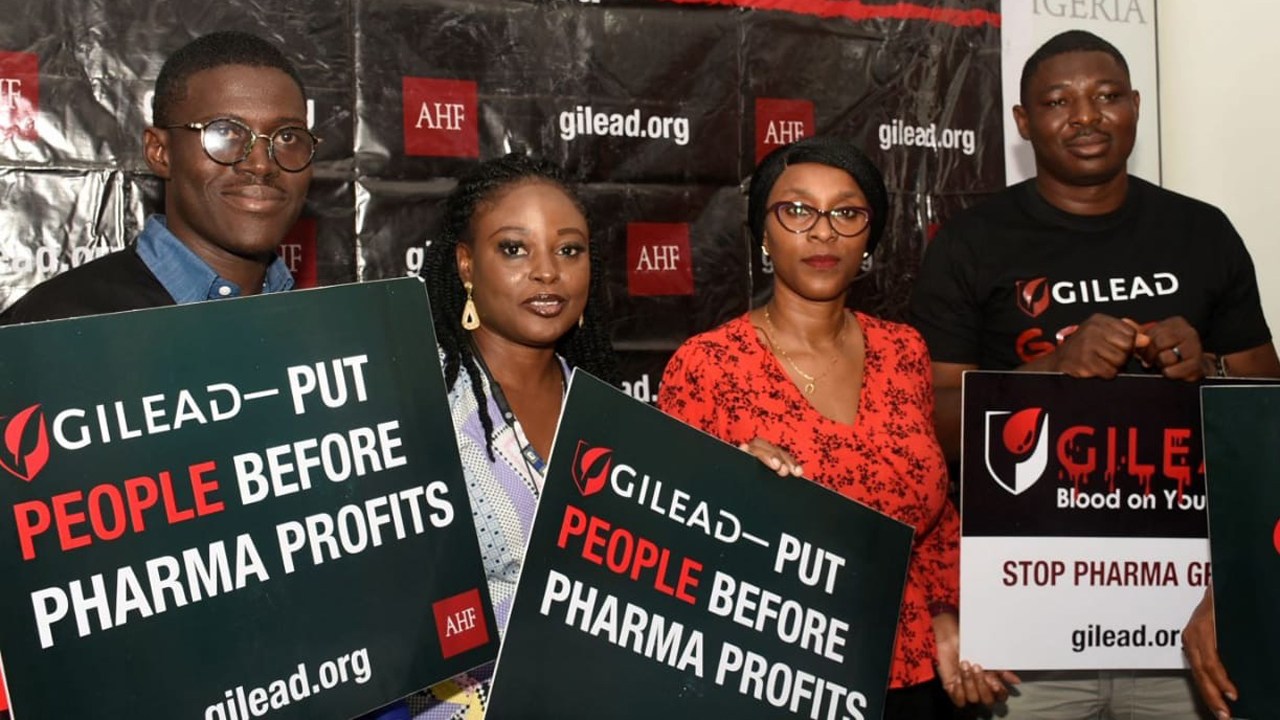
The CSOs said Gilead has consistently blocked attempts to introduce cheaper generic versions of its medicines, thereby exploiting humanity.
The CSOs made this known during their advocacy meeting organised by the AIDS HealthCare Foundation with the theme “30 days, 30 countries Gilead Advocacy.”
The National Coordinator, Network of People Living with HIV/AIDS in Nigeria, Abdulkadir Ibrahim, the advocacy is aimed at calling out Gilead on wrong practices.
Ibrahim who was represented by the Advocacy Specialist of NEPWHAN, Micheal Edoh, said the continuous profiteering by Gilead at the expense of lives was unacceptable to all stakeholders and the community.
“We understand that you have patent rights which have lasted over 20 years, as you renew, do it in an ideal way and if you are not innovative, make it generic. The world would be a better place if these drugs can reach every corner, being accessible and affordable everywhere.
“We will continue to advocate at our various spaces, different platforms, and engage various relevant stakeholders locally and at the global level. We will continue to call out Gilead and big pharmaceutical companies to stop evergreening and patent extension as it takes advantage of the vulnerable communities, he added.
The Executive Secretary, Nigeria Network of Religious Leaders Living with HIV/AIDS, Amber Erinunwinhe said the group was standing strong on the advocacy; thereby ensuring millions of people have access to affordable lifesaving drugs.
According to her, “Gilead is out there making money from our communities and I often say you cannot make money out of people when they are dead, you can only make money when they are alive. As CSOs, we are lending our voices and saying pharma greed must stop, we are saying stop evergreening patent and open license for generic production to reduce the cost of medications.”
She added that while the country works towards achieving universal health coverage for its citizens, it was important to rise against the selfish practices of big pharmaceutical companies so more people can access treatment.
On his part, National Deputy Coordinator, Association of Positive Youths Living with HIV in Nigeria, Kareem Adebola said the advocacy was timely as it affects persons living with HIV and other life-threatening diseases.
“For young people, one of the strategies we will adopt is the use of social media engagement. We need them to come up to action, because what happens if the Emergency Plan for AIDS Relief leaves with their aid? What happens when Global Fund stops supporting us?
“What will be our faith if these partners leave? That is why we would adopt strong and efficient use of the social media and media influencers among us to push out these messages,” he noted.
He further applauded AHF for taking the lead in the advocacy by ensuring millions of people especially community of persons living with HIV/AIDS and hepatitis have access to lifesaving medication.
The Country Program Director AHF Nigeria, Dr Echey Ijezie, said Gilead was listed among the top 15 largest biopharmaceutical firms in the world, one of which puts profit before lives.
Ijezie said the company generated billions of dollars in profit by maintaining a monopoly on some of the most effective and well-tolerated antiretroviral drugs.
“In 2021, they generated over 27 billion dollars in revenue and paid its CEO over 19 million dollars in compensation,” she said.
He further decried the astronomical profit made by Gilead over medication such as HIV, Cryptococcal Meningitis and Hepatitis C that should reached and benefit many lives.
The AHF Director for Advocacy and Marketing for Africa Bureau, Oluwkemi Gbadamosi-Braimah said the advocacy by the Foundation was focused on placing demand on Gilead to, “stop evergreening patent on existing HIV and AIDS drugs like Truvada. Open the license for the generic production of the hepatitis C drug, Harvoni to all low and middle-income countries without exception. License technology for the production of treatment for cryptococcal meningitis to generic manufacturers.
“Link executive compensation to the impact on positive public health outcomes and access to medicines in developing countries.
“What we are doing with partners mainly is to galvanise civil society organisations and communities to call out Gilead on its selfish practices.
“This is because these issues do not only affect the organisations but the communities that we serve, such as people living with HIV and hepatitis.”









